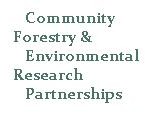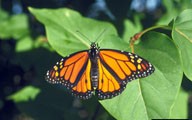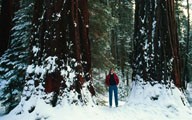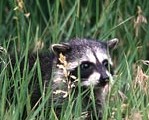|
2004 - 8th Annual CFERP Workshop - Wisconsin
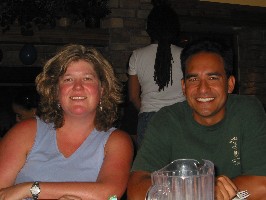
Two things stand out about the 2004 CFERP annual workshop: 1) the diversity of people attending, and 2) the quality of the half-day session on participatory research.
The workshop, which was held from September 9 to 12, 2004, at the Lake Lucerne Camp and Retreat Center in Neshkoro, Wisconsin, had the greater diversity than any previous workshop. Of the forty-nine people attending 14% were Native American or Native Hawaiian and 20% were African American.
This diversity was reflected in the presentations on research the fellows are conducting as their community partners presented rich, and often moving, accounts of the histories and struggles of their respective communities. The poem Kali Fermantez’s partner, Lilette Subedi, recited and explicated about the Hawaiian approach to land and sea management moved both of them to spontaneously recite a traditional Hawaiian chant together. Katy Fulton’s partner, Dawn Jackson, told a moving story of how the impostion of the American style of government involved the cutting down of the totem poles in her Tlingit village in Alaska. Jacquelyn Ross, Don Hankin’s partner, spoke of the concerns of native Californian basket weavers in the management of plants used in basket making, and Audrey Peterman, Carolyn Finney’s partner, told powerful stories of the contributions African Americans have made to U.S. national park and forest management. Victoria Bencomo, Brinda Sarathy’s partner, similarly moved the audience with her vivid descriptions of the hardships Latino forest workers in southwestern Oregon face.
These presentations highlighted the importance of emotion in research as well as the passion people have for the issues facing their communities. They also accentuated the interest and enthusiasm the communities partners have for sharing in the fellows’ research – research that produces knowledge that they too “own.”
The half-day session on participatory research generated a great deal of enthusiasm as well. An innovation this year was to devote two hours to break-out sessions on the “Questions That Won’t Go Away”, or QTWGAs. Over the year’s we have noted that certain questions arise repeatedly year after year at the workshops. This year Heidi Ballard, Jonathan Long, and Larry Fisher, who organized and facilitated the PR session, distilled these questions into seven issue areas:
Community Identity: “Who is the community?”
Roles of the Researcher: “Who are you?”
Membership Issues: "Insider/ Outsider?"
Community Expectations: “Promises, promises?”
Accountability and Rewards: "Who Owns You and Whom Do You Owe?"
Fractured Communities: "Walking the minefields?"
Power Relationships: "What Prime Directive?”
Workshop participants broke into groups to address these issues separately and then reported back to the entire group. This exercise led to many insights and suggestions for how to deal with them in the field.
The workshop also included a field trip to the forest lands of three members of Wisconsin Family Forests’ local chapter called the Deerfield Alliance. The land owners led the group on a four mile hike along a trail traversing their land. Along the way a local ecologist discussed local plant history and ecosystem dynamics, and the land owners described their forest management practices including their timber management objectives, their struggles with invasive species, and their attempts to grow Christmas trees commercially. (They also pointed out the impact J.K. Rowling’s directive to her U.S. publishers to use only paper produced from certified forests in her Harry Potter books had on Wisconsin forest land owners: Not enough certified wood could be found in the United States so the publisher had to turn to Canada for its supplies.) The field trip afforded workshop participants a view of love and passion the land owners have for their land.
Perhaps the best way to sum up the workshop is in the words of the participants themselves. Following the workshop we received the following email messages.
“It was an astonishing experience. We had (if my mental count is right) 7 Native Americans/Native Hawaiians and 8 African Americans, a Latina and a South Asian. This created a safe space in which people were able to express all manner of emotion--people cried, people choked up. I learned things about the experiences of people of color in a new and visceral way. Thanks for enabling us to do this and for pushing us to work harder on diversity.”
"Early September I had the exquisite pleasure to attend a retreat in Wisconsin as the community partner to Carolyn Finney, who's completing a doctorate in geography, and 14 other participants in the U.S Community Forestry Research Fellowship Program. The Fellowships, administered out of U.C. Berkeley, enable students pursuing social science or natural resource science degrees to do their graduate research in participation with a specific community. Research projects include looking at the labor issues affecting Latinos working in south Oregon forests; Native American tribes' efforts to restore their ancient right to use fire in managing their ecosystems; the history of African Americans and how it influences their relationships to the Great Outdoors, and how to restore the ecosystem to bring back plentiful salmon to the Pacific Northwest. The students benefit from the opportunity to advance their educational goals, and the commun ity benefits from the opportunity to have this brain power working on their behalf.
It was like bathing in a sea of delight to experience the passion and integrity that the young people bring to their research, and to observe the beauty of the relationships that developed between them and their community partners who were often from very different ethnic and economic backgrounds. It inspires great enthusiasm for the future management of our natural resources.”
|
